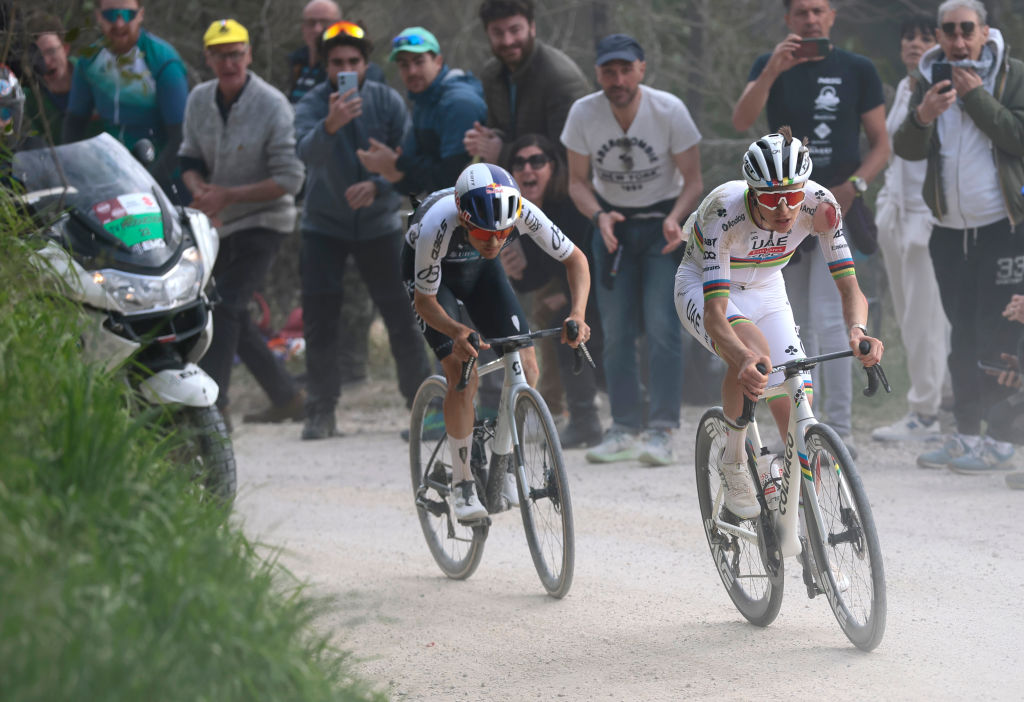Why do cycling's Grand Tours often start abroad? Grand Départs explained
Foreign starts to Grand Tours are by no means new but why do major races often begin beyond their borders, how much money is involved, and where could be next?
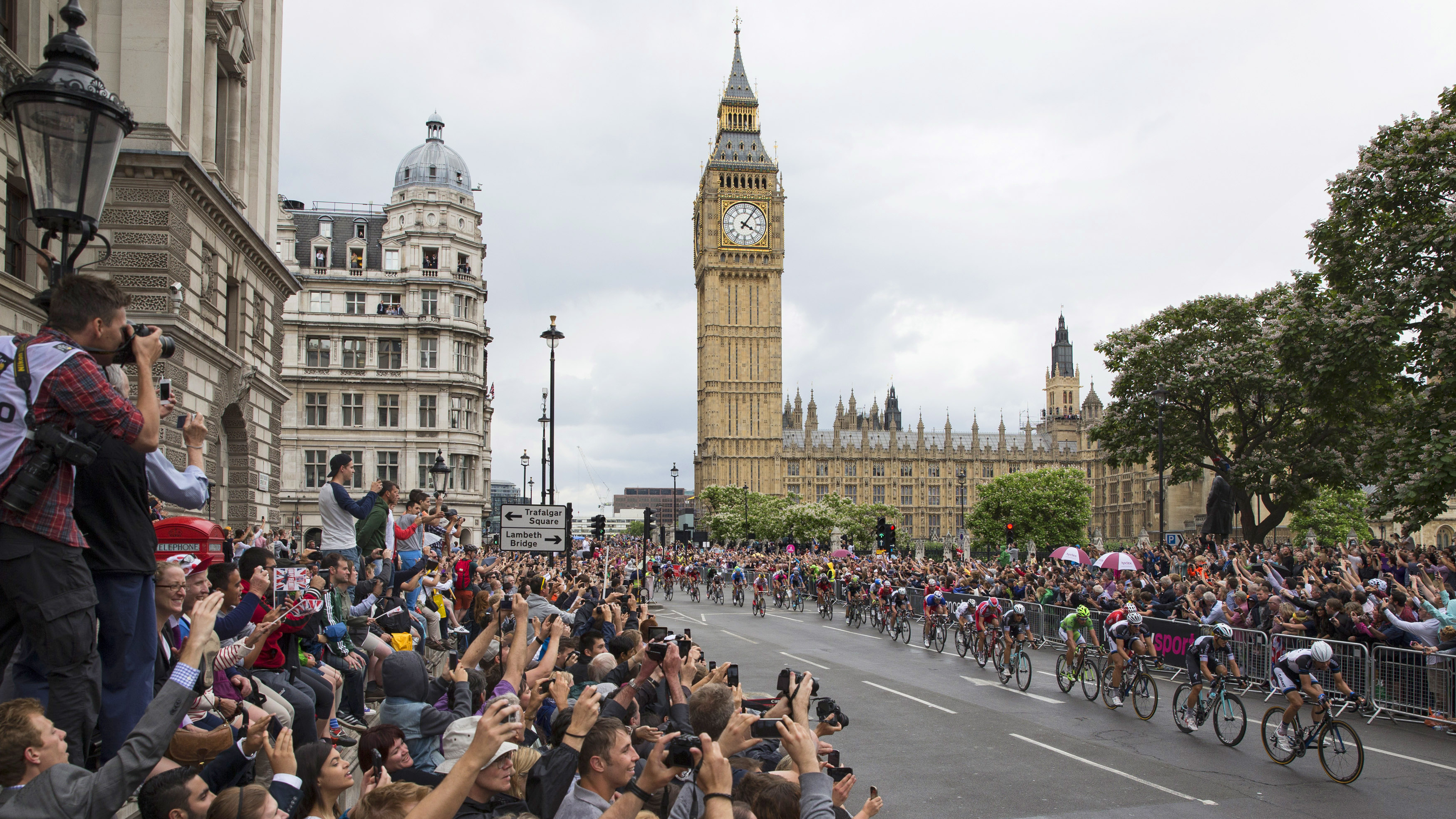
The latest race content, interviews, features, reviews and expert buying guides, direct to your inbox!
You are now subscribed
Your newsletter sign-up was successful
The Grand Tours are without doubt pro cycling's most popular and well-known races. Ask someone in the street to tell you something about cycling, and there's a high chance that 'the Tour de France' will be their immediate response. It's a logical response when the French Grand Tour is the largest annual sporting event in the world.
Yet more and more often the Tour de France does start in France, the Giro d'Italia kicks-off outside of Italy and the Vuelta a España has started as far away as the Netherlands. This year the Vuelta will start in Italy, while the opening stage of the Corsa Rosa roll out from the coastal city of Durrës, in Albania.
The Grande Partenza at the Giro d'Italia, the Grand Départ for the Tour de France and Tour de France Femmes, and Gran Partidas for La Vuelta a España have become major events, with organisers using them to secure extra funding and wider visibility from a city, region or nation interested in hosting their races.
The first foreign start for a Grand Tour came in 1954 when Amsterdam hosted the start of the Tour de France. It was only a pair of stages, with the finish on day two being back inside L'Hexagone in Lille. The Grande Boucle has since hosted 26 starts outside of France, while the Giro d'Italia first went elsewhere in 1965 to the enclave of San Marino. Albania will be the 15th start beyond Italy's borders.
The Vuelta a España has begun from outside of Spain just five times in its history so far, with the first foray only coming in 1997 in Lisbon, Portugal. The Spanish Grand Tour is now equally as international as its French and Italian counterparts. It's previous Gran Partidas was also held in Lisbon, and the next two will take place in Italy and Monaco, respectively.
The Tour de France Femmes returned in its latest reincarnation in 2022, hosting its first foreign start just two years later from Rotterdam in the Netherlands. In fact, the route only arrived in France halfway through stage 5 after four days on Dutch and Belgian soil.
Yet just because road cycling's major stage races have a tradition of frequently starting outside their country of origin, it doesn't explain how they come about and the driving forces behind them; that's where things get a bit more complex.
Unlike some major sporting events, such as the FIFA World Cup or the Olympics, foreign starts in Grand Tours don't have a standard bidding process per se. Prospective nations, cities, or regions will make contact with race organisers ahead of the edition they'd like to host, pitching their idea and why they think it deserves to kickstart one of cycling's major races.
The process can often start as far as a decade out, with the 2027 UK Grand Dèpart from Scotland first pitched in the mid-2000s.

Race organisers and potential hosts will then work together to co-create a foreign start over several years so that it meets the needs of that year's race from not just a sporting standpoint, but as a complete event with every aspect taken into consideration.
Route visits are then carried out to finalise the parcours, before an official bid is made to race organisers. It is often the case that bids are for one of several editions of a Grand Tour, for instance, Copenhagen originally bid for the Tour de France Grand Départ across 2019, 2020, and 2021, eventually being awarded the latter before it was then postponed 12 months.
A myriad of factors determine why and where Grand Tours host foreign starts, from economic, sustainability and transportation factors, to historic and cultural forces at play too.
Below, we'll go into more detail, with insight from individuals who have been part of previous Grand Départs, are currently planning future events, and one who organised a foreign start that never came to fruition.
Money talks
It's be wrong not to acknowledge that economic forces play a key part in taking a Grand Tour away from their homeland.
Prospective hosts must pay the organisers of the Grand Tours, Amaury Sport Organisation (ASO) for the Tour de France, Tour de France Femmes, and Vuelta a España, and RCS Sport for the Giro d'Italia, to bring the race to their country.
The cost of hosting a Grand Départ can vary massively depending on how attractive a proposition the bid is to the organisers, as well as running cost variables such as the number of stages, road closures, policing costs, and other organisational fees.
Cyclingnews spoke with Lars Vallentin Christensen, senior events specialist at Wonderful Copenhagen, the events company behind the 2022 Tour de France Grand Départ in the Danish capital, who shed light on the approximate costs of hosting the three stages in Denmark.
"It's difficult to come down to it, but depending on how much you include - the route, the road blocks, the police - at least €12 million," Vallentin Christensen revealed when asked how much Copenhagen paid for the privilege of kicking off the 2022 edition of Le Tour.
However, in comparison to other recent foreign starts, this figure is on the lower end of the scale. The Grande Partenza for the 2022 Giro d'Italia was believed to cost Hungary over €24 million, with a similar bill believed to have been footed for the 2014 Yorkshire Grand Départ of the Tour de France.
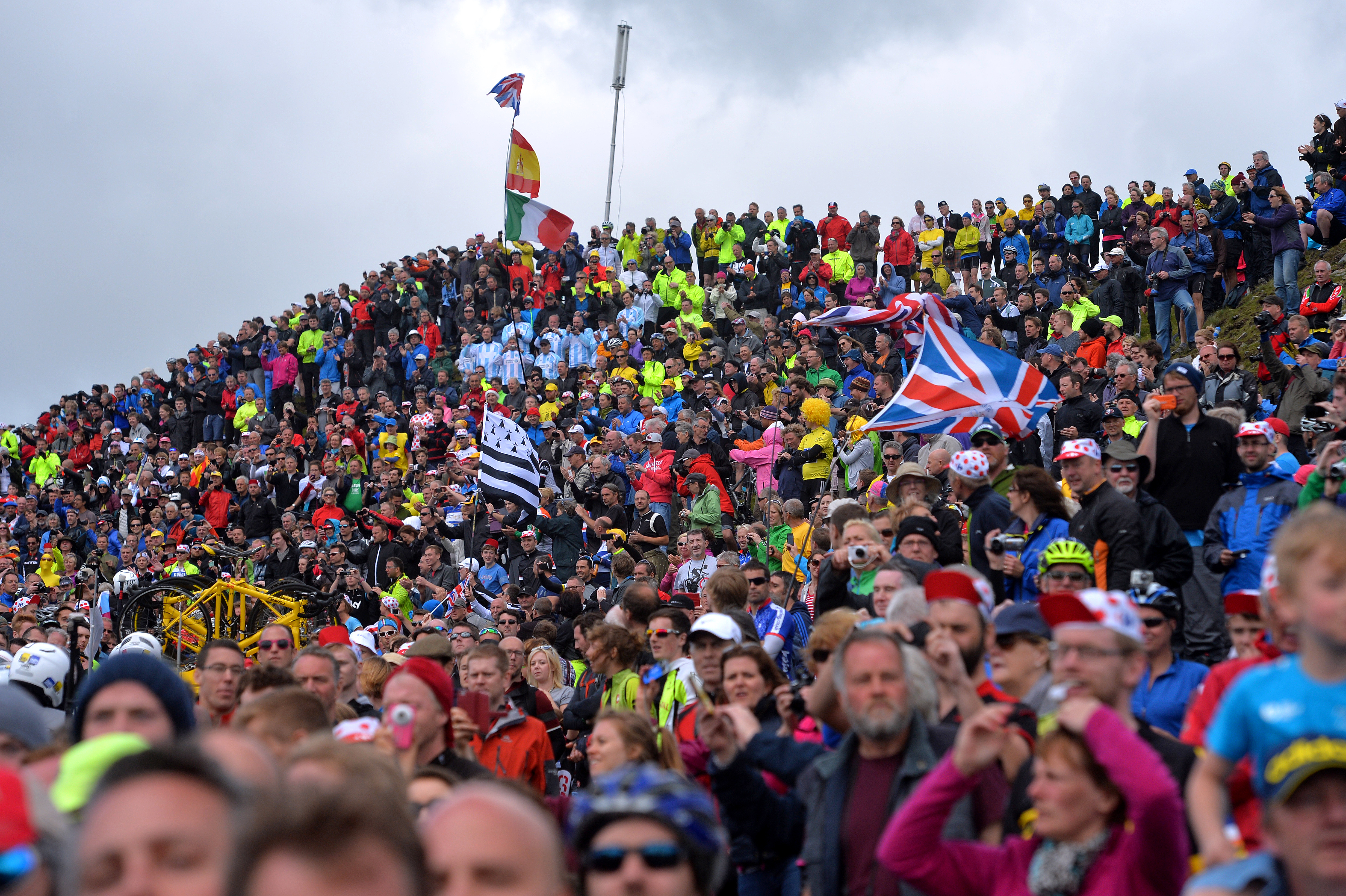
However, despite the sizeable outlay to win the bid and to host the event, hosts are willing to commit the cash with the expectation that the economic return will well outweigh it.
Simon Morton, Deputy CEO and Director of Sporting Systems and Events at UK Sport, highlights this as a key focus for the upcoming 2027 Tour de France Grand Départ in Great Britain.
"It's one of the world's biggest events, so it costs us to host. UK Sport's role as a strategic agency in the area of sporting events is to help program out what the UK should be hosting, when and for what reasons. So when we do that, we look quite carefully at the return on investment."
Morton, who wasn't yet in a position to comment on the likely cost of the 2027 men's and women's starts, acknowledged that the cost of hosting such an event can weigh heavily not just at the national government level, but also with local authorities. However, he and many others believe that the benefits outweigh the costs.
The tourism revenue that Copenhagen gained off the back of the 2022 Grand Départ was roughly 350 million Danish krone, which is in the region of €46 million, Vallentin Christensen indicated.
A unique selling point and the American dream
Alongside being able to put up the money to host the race, foreign starts have to also be attractive enough propositions to encourage ASO and RCS to take the races outside of their native countries.
Vallentin Christensen was quick to mention the need for "a unique selling point" when pitching to the French Grand Tour's organisers.
Planning for Denmark to host the Tour de France began as early as 2011, with the concept taking a few years to iron out between Danish representatives and their contacts at the ASO. During that time, Vallentin Christensen's team came up against a sizeable obstacle, or to put it better, a lack of one.
"We obviously knew that Denmark is a flat country, so we needed to find our 'mountain' and that turned out to be the Great Belt Bridge."
Denmark thought outside the box in terms of the parcours challenges that their start could offer the Tour, something new that helped to convince ASO. Another point of difference that helped to set Copenhagen apart from other suitors was the city's cycling heritage.
"Copenhagen is a bike city, so we came up with a very long tagline of 'the greatest cycling race in the world meets the greatest cycling city in the world.' That was supposed to be the working title, and it's not the most catchy, but it seemed to work anyway."
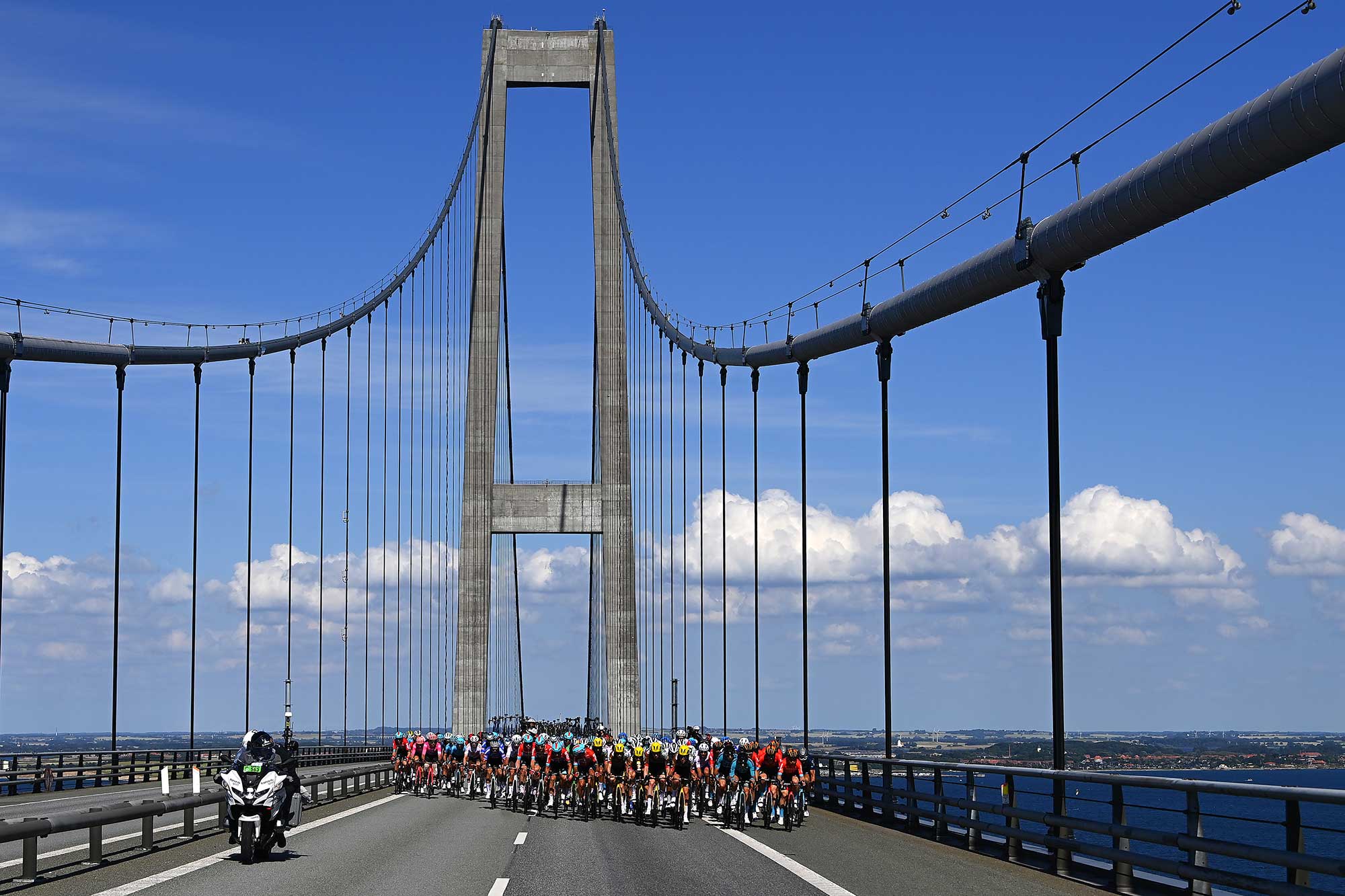
Taking a Grand Tour to one of the cycling capitals of the world is one thing, but hosting a start in one of the world's biggest cities is a whole other ballgame.
That didn't stop former Giro d'Italia organiser Angelo Zomegnan attempting it in the late 2000s.
The Giro wanted to be the first Grand Tour to start outside of Europe, specifically the United States of America. Stages in Washington D.C., Philadelphia, and New York were planned for perhaps the most unique Grande Partenza ever, Zomegnan told Cyclingnews.
"In my opinion, at that time the Giro needed to internationalise itself, as [it does] now. The [proposed] Grande Partenza from Belgium in 2007 was the first step in my mind. And after, America: the first time outside of Europe for a Grand Tour."
The main attraction for the Italian and RCS Sport was the potential rewards that the race visiting the US would bring.
"Starting from the USA would have meant having the big American television networks in tow, which until then had only shown crumbs of the Giro with a minimal share," Zomegnan explained.
"Can you imagine the growth in audience in Europe with the Giro proposed [with coverage] at dinner time and the increase in advertising returns and popularity?" he continued.
Zomegnan lays the reason for the plan not coming to fruition at the feet of other RCS managers, their lack of ambition and fear of "making the leap in quality."
Of course, the extensive transfers, time zone difference, flights across the Atlantic and costs can't be ignored.
Transfer challenges and environmental costs
Cycling's environmental footprint has moved more and more into the spotlight over recent years as the sport aims to become more sustainable.
However, the very nature of a foreign start means the topic of longer transits between stages and their impacts on the climate is hard to ignore.
The Giro's proposed trip to the US for a three-stage Grande Partenza would have required an 8.5-hour flight back to Rome on the rest day. Calculating the environmental impact of such a plan is tricky, especially given the size of the race caravan.
Even if you just assess the impact of a round-trip from Europe to the US and back to Rome for the 184-rider peloton, it equates to 460 tons of CO2 emissions (tCO2). Add in the team staff, race organisers, and media, and that figure shoots up even higher.
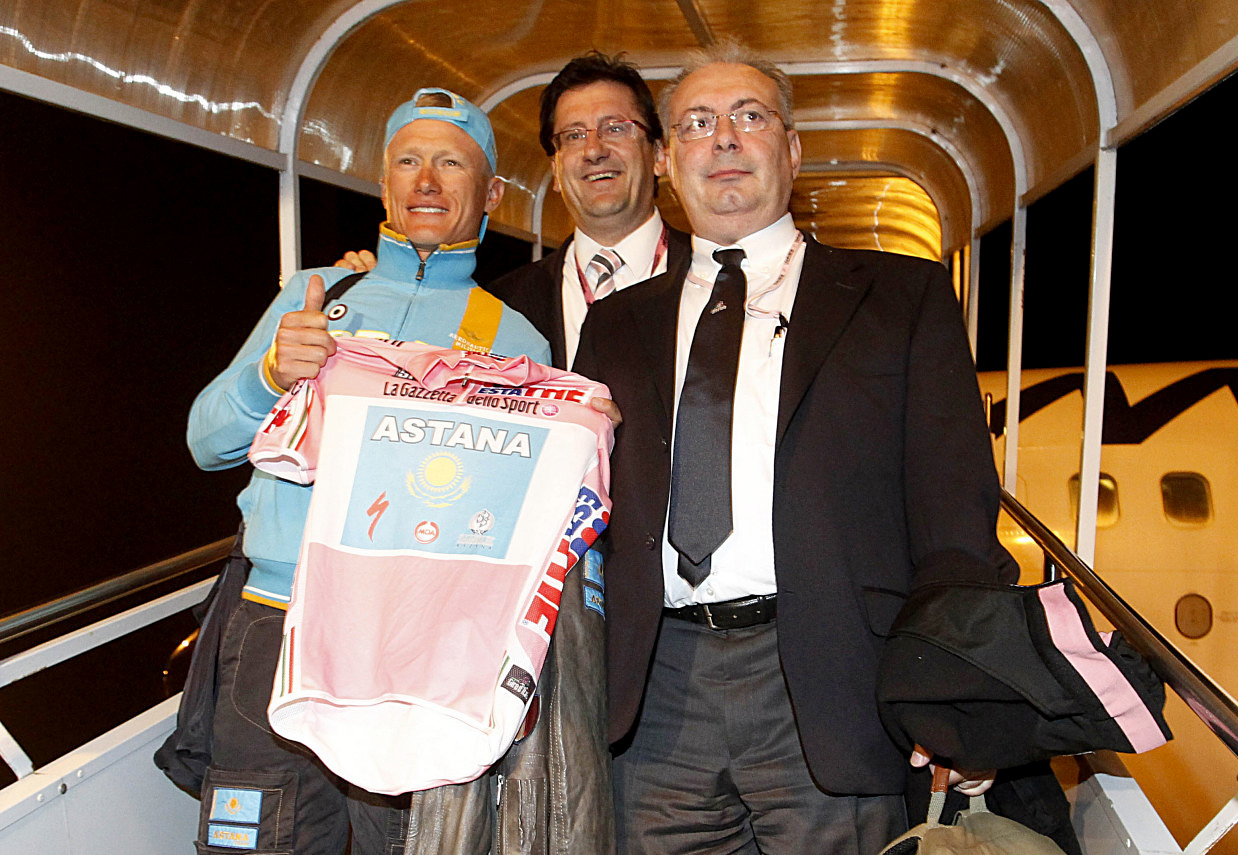
UCI rules state that a Grand Tour can include an additional rest day, bringing the total up to three, once every four years. This potentially facilitates a foreign start further afield than neighbouring countries.
Transfer times between stages are an issue that Grand Tours face even when the race is at home, with the 2025 Tour de France, taking place completely inside France, featuring over 3,000km of them, almost the same distance as the Tour itself.
Morton highlighted that it's also a big issue they're attempting to overcome in the planning for the UK's 2027 Grand Dèpart. While the full routes for the Tour de France and the Tour de France Femmes visits have yet to be unveiled, it is known that the men's race will feature a stage in each of Scotland, Wales, and England. Plenty of discussions are being had to mitigate the logistical challenges of such a route, as well as the sustainability implications.
"It's another big issue for the ASO, because any big sporting event has an environmental impact. We definitely want to minimise that through all the normal ways of reducing carbon emissions, minimising waste and promoting sustainable travel around the event," Morton added.
Vallentin Christensen believes that when the UCI Road World Championships return to Denmark in 2029, an event bid won off the back of their Grand Dèpart success, the organisation committee will have even greater focus on encouraging spectators to plan their visits with sustainability in mind.
Visibility and a long-term legacy
Legacy is a buzzword commonly associated with sporting events, and the foreign starts of Grand Tours are no different.
The ASO and RCS Sport see it as a key part of a foreign start bid, helping to justify their decision to take the race away from France, Italy, or Spain.
Both the Yorkshire Grand Dèpart in 2014 and Copenhagen three years ago are examples of when a foreign start's visibility and spectacle have acted as a springboard for future pro cycling events in the regions. Less than 12 months after the British county hosted the Tour, the first Tour de Yorkshire took place. The stage race had five editions before Covid-19 and financial issues made it no longer viable to run.
Meanwhile, as Vallentin Christensen was quick and proud to point out, Denmark now has plenty of pro cycling events in the pipeline. It welcomes a men's and women's WorldTour one-day race for the first time in 2025 with the Copenhagen Sprint race. That's on top of last year's Track Worlds, an imminent BMX World Championships, and the Road Worlds returning in 2029.
The Dane pointed out that on top of the financial boost Copenhagen received from hosting the 2022 Grand Dèpart, they received 75,000 mentions across editorial and social media content worldwide, visibility that acted as a gateway for the future events coming their way.
Of course, though, the lasting impacts stretch much wider than the area's reputation for hosting pro cycling events. In Copenhagen, the local people's impressions were equally, if not more important than those of visitors from afar.
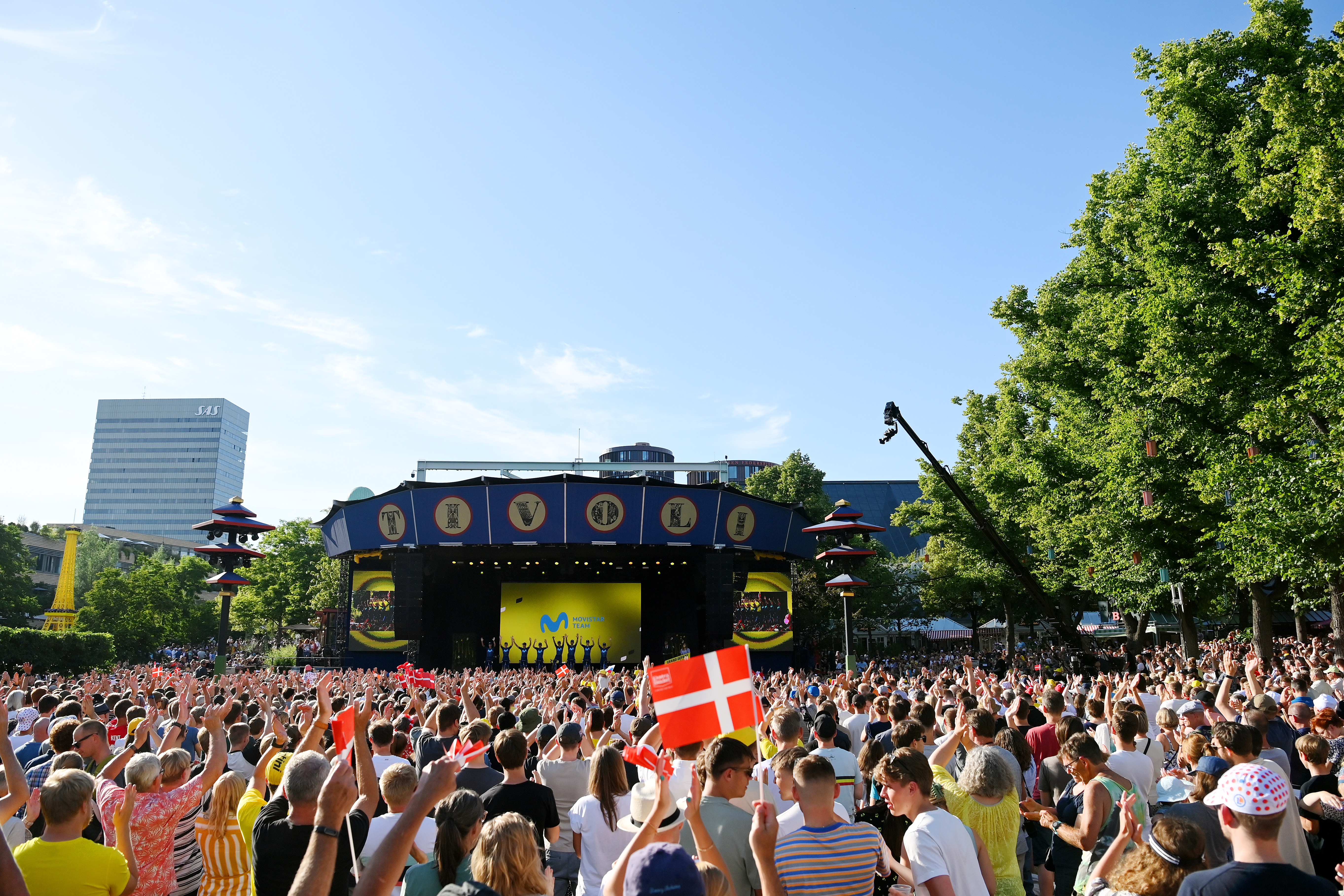
"We had to make sure that we had the media coverage all over the world and also bring in some visitors, but also very, very important for us was to involve the city and all the residents, traders and business operators in the city, to make them get involved with the event and bring them closer together."
The city held several meetings with local people in the build-up to encourage buy-in to what they were aiming to achieve, and it helped to turn Copenhagen yellow for the arrival of the Grande Boucle.
In a post-Tour survey of Copenhagen's residents, a considerable 75% responded positively to the race being held in the city, with less than 5% not engaged with the event.
Asking Morton about how he's looking to build a legacy akin to that of Yorkshire's off the back of the 2027 Grand Dèpart, he pinpointed fostering community and civic pride as a key aim. He spoke passionately about the reaction that the Tour had in every village and town it passed through in Yorkshire, with the hope that weaving the race through three nations can help to scale this effect up to a national scale, alongside other legacy goals focusing on social impact, wellbeing, and sustainability.
"Threading the UK together through the world's biggest cycling race is a really tangible demonstration of what our countries can achieve when they work together. And [there's] no better way of doing that than hosting the opening stages of the Tour de France."
Where next?
Looking at the trend of foreign starts at Grand Tours and the frequency becoming ever higher, there's no doubt that major races will continue to hunt for host venues that offer them something different and exciting to capture new audiences.
Does this mean that they naturally go further afield? Given their sustainability targets, the obvious answer would be no, but foreign starts aren't just decided based on air miles, and Grand Tours only seem to be pushing out into new frontiers.
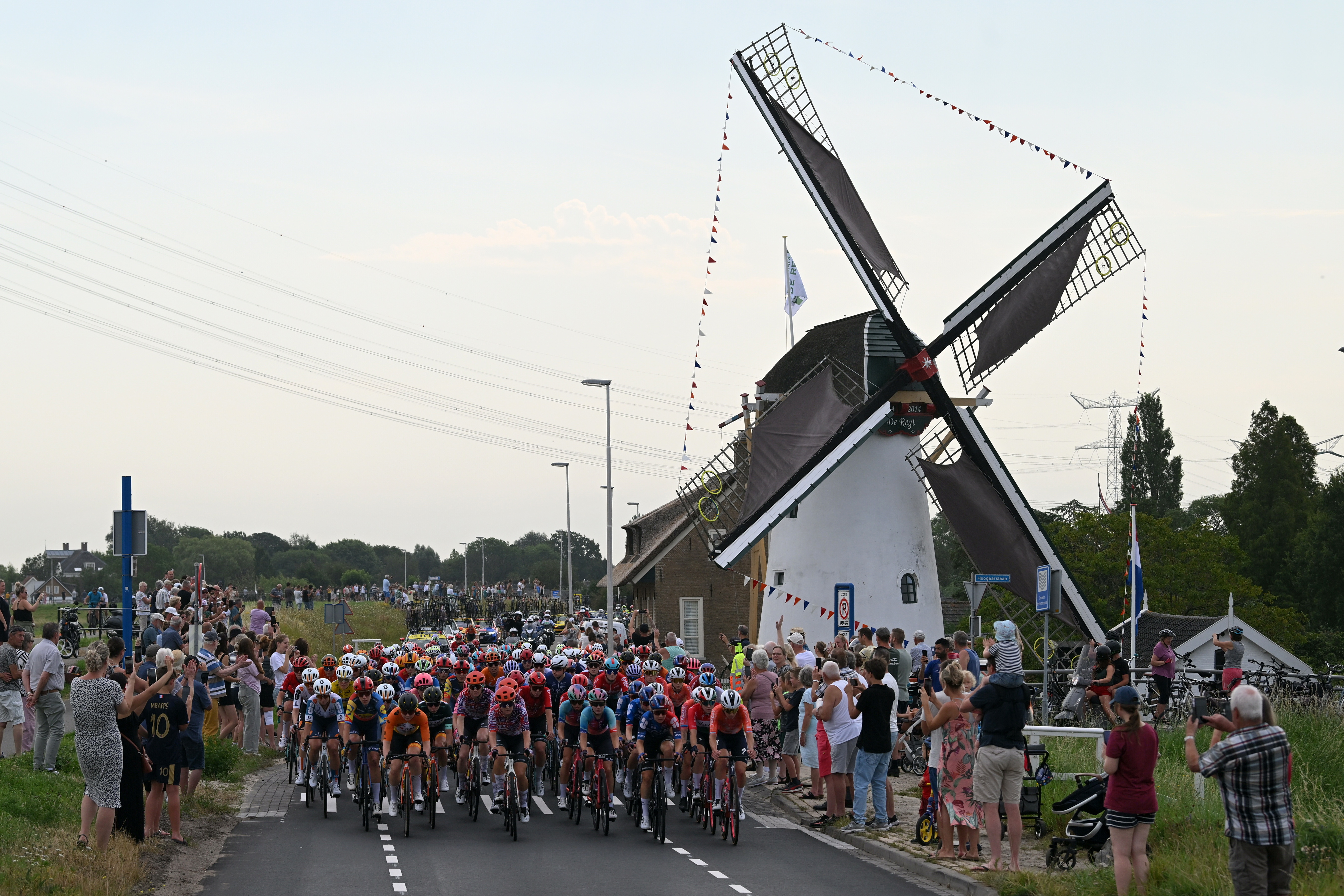
What's more, Grand Tours have also visited destinations to signify historic or watershed moments, like the West Germany Tour de France start of 1987 or the 2019 start in Brussels honouring Eddy Merckx's first Tour victory, 50 years on.
It wouldn't shock anyone for Slovenia to host a Grand Dèpart in the years to come, given their current period of success, nor would a visit to the Isle of Man be out of the question either. While equal focus is expected to be on the planning of more foreign starts for the major women's stage races beyond the UK in 2027, after the Tour de France Femmes' inaugural foreign start in the Netherlands last year.
Vallentin Christensen predicts Denmark will be in the running to host the Tour de France again in the next decade, but perhaps in a multi-country format to offer something unique yet again.
There have been suggestions that the Giro d'Italia could start in the UAE in 2027, with Saudi Arabia perhaps keen to host the Corsa Rosa if the One Cycling project is successful. High summer temperatures would make it almost impossible for the Tour de France to start in the Middle East but North America is far more suitable.
Zomegnan still believes the Giro d'Italia should pluck up the courage to become the first Grand Tour to visit the USA. It is perhaps a matter of when rather than if, as the Grand Tour look for more visibility and more funding in a combination of sport, politics and business.

Pete joined Cyclingnews as Engagement Editor in 2024 having previously worked at GCN as a digital content creator, cutting his teeth in cycling journalism across their app, social media platforms, and website. While studying Journalism at university, he worked as a freelancer for Cycling Weekly reporting on races such as the Giro d’Italia and Milan-San Remo alongside covering the Women’s Super League and non-league football for various titles. Pete has an undeniable passion for sport, with a keen interest in tennis, running and football too.
You must confirm your public display name before commenting
Please logout and then login again, you will then be prompted to enter your display name.
